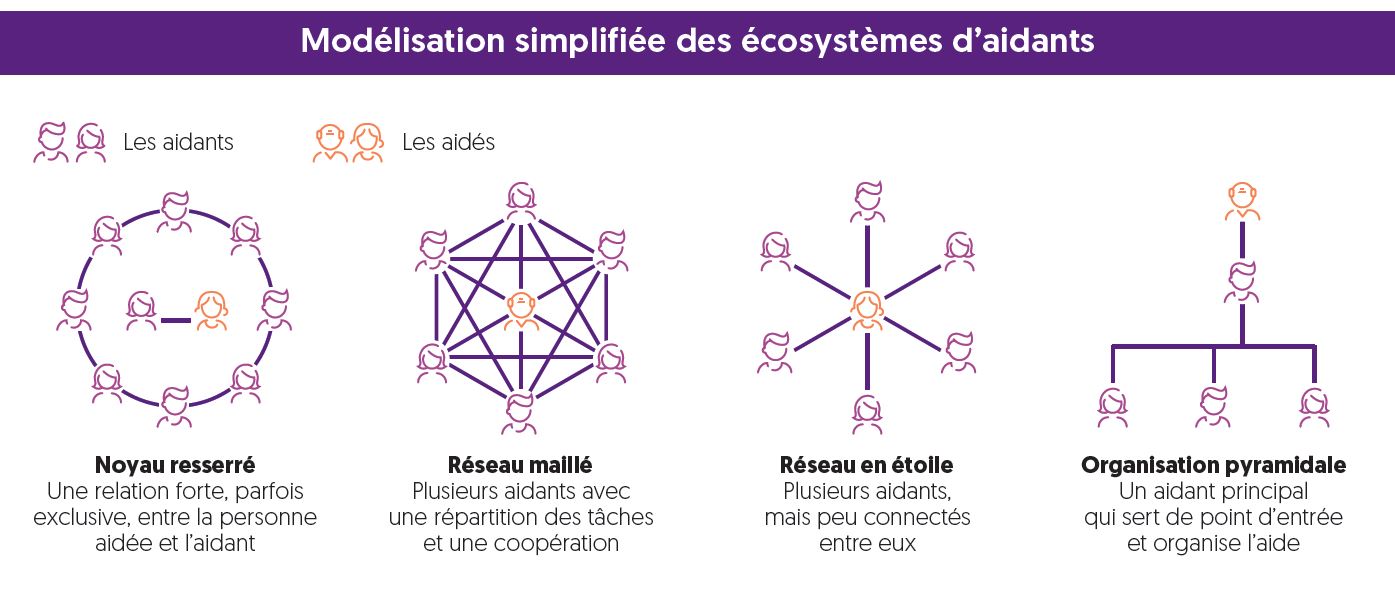In our current society, support for people in situations of dependence has become essential. This is where thefamily caregiver, a loved one who plays a crucial role in providing daily help to a person dependent, whether a senior or a person in a situation of disability. This role, although often non-professional, involves varied and demanding responsibilities. Understanding the definition of the caregiver and the missions incumbent upon them allows us to appreciate the value of their commitment and the challenges they must meet. Beyond material assistance, the caregiver must be a real pillar of emotional and practical support.
L’family help is an essential person in supporting individuals who find themselves in a situation of dependency, whether they are elderly or disabled. Their role may vary depending on the specific needs of the person being cared for, but it encompasses a set of responsibilities aimed at improving their daily life.
THE caregiver is often a family member, friend, or neighbor dedicated to providing non-professional assistance. This support can be partial or total, and it comes in different forms, ranging from help for activities of daily living (ADL) such as meals, hygiene or travel, up to moral and emotional support. This personal connection fosters an atmosphere of trust and understanding that is often necessary to successfully complete this task.
The responsibilities of the family caregiver are multiple and require constant attention. First of all, the caregiver must ensure <>> of his loved one. This includes checking that medical care activities, such as taking medications, are being followed. In some cases, the family caregiver must also organize and coordinate medical appointments, thus facilitating access to appropriate care.
At the same time, the caregiver must be able to recognize the signs of distress or discomfort of the person he or she cares for. Increased vigilance is necessary to identify any changes in one’s physical or psychological state, which requires patience and good communication. In addition, these caregivers play a crucial role in maintaining the autonomy and dignity of the dependent person. They ensure that they respect their preferences and to guarantee their well-being.
Emotional support is also a key element in caregiver responsibilities. Being there to listen, support and encourage can have a significant impact on the morale of the person being cared for. Moments of sharing and social interaction play a fundamental role in countering the isolation that can accompany addiction. Thus, the family caregiver must be emotionally and socially supportive, as these aspects are just as important as physical care.
There are also issues of management which often fall to caregivers. This includes managing finances and administrative documents related to the dependent person. Carers must be informed of the different financial assistance available and the administrative procedures to follow to benefit from this support.
It is crucial to emphasize that the role of family caregiver can be challenging. Thus, it is essential that he takes care of his own physical and mental health. Caregivers should ensure that they allow themselves time to rest and seek support when necessary. Training can also be offered to better manage difficult situations. These training courses address the challenges faced by caregivers and help them acquire essential skills to improve the quality of care they provide.
In short, the family caregiver plays a vital role in the daily life of people in a dependent situation. Their responsibilities, both in physical care and in moral support, are essential to ensure the well-being and autonomy of the people they care for. Their action deserves appropriate recognition and support in order to perpetuate this helping relationship.
L’family caregiver has a fundamental role in supporting people in situations of dependency. This support can take several forms, ranging from physical assistance to daily tasks, such as feeding, washing, or even managing medical appointments. By providing this assistance, the caregiver contributes significantly to keeping elderly or disabled people at home, thus allowing them to maintain a certain degree of autonomy.
THE responsibilities of the caregiver are not limited only to practical aspects. It also plays a crucial emotional role, offering listening, comfort and presence. The relationship between the caregiver and the dependent person is often marked by strong emotional ties, which makes the support even more valuable. The caregiver also ensures continuity of care and compliance with treatments, which requires careful monitoring and good communication with health professionals.
It is important to note that the family caregiver acts in a non-professional capacity. This specificity means that he does not always have the tools or training necessary to manage certain situations. This is why it is essential that caregivers are supported by support and information systems, so that they can better manage their role. Many structures offer training and advice to help them in their daily lives.
Finally, it is essential to recognize that the status of family caregiver can have repercussions on the personal life of the support person. This role can cause stress and physical and emotional challenges. It is therefore essential that each caregiver takes care of themselves to continue to offer the best possible support.








